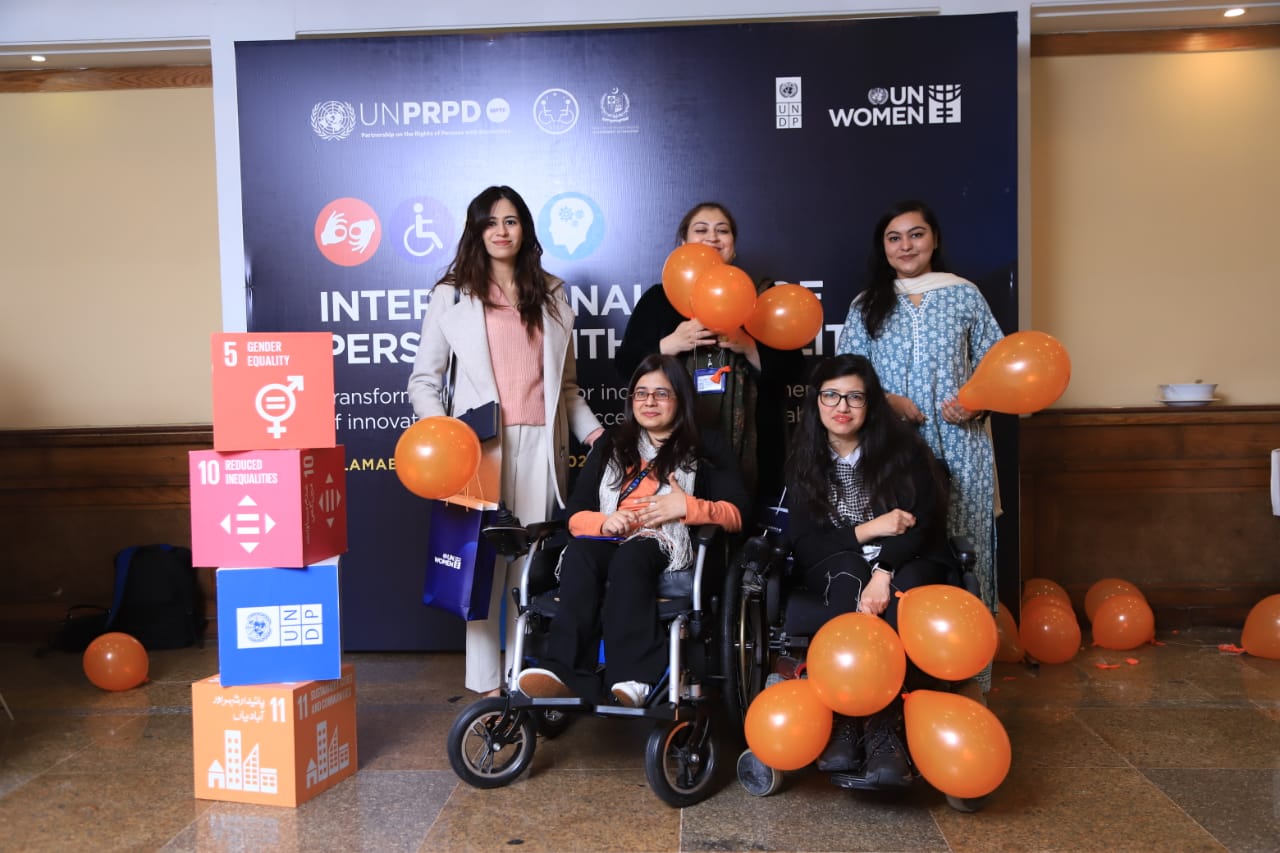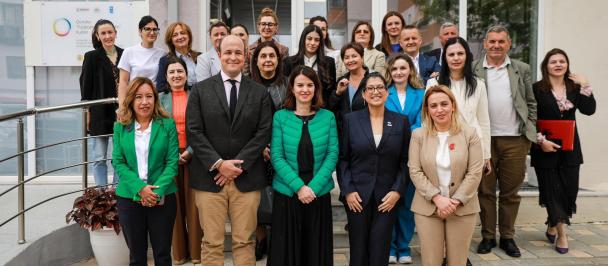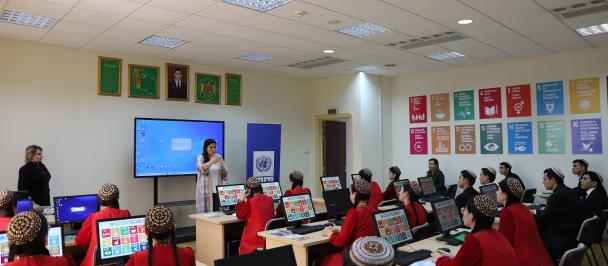Ministry of Human Rights, United Nations Development Programme (UNDP), UN Women and United Nations Partnership on the Rights of Persons with Disabilities (UNPRPD) emphasize importance of the private sector in fostering an accessible and equitable society
December 9, 2022

Islamabad, December 8 2022— In line with the theme of the International Day of Persons with Disabilities (IDPD) 2022, ‘Transformative solutions for inclusive development: the role of innovation in fueling an accessible and equitable world’, Ministry of Human Rights , United Nations Development Programme (UNDP) and UN Women held an event featuring a dialogue on the role of the private sector in fostering an accessible and equitable Pakistan.
The event gathered around 70 participants, mostly women with disabilities as well as representatives of the private sector.
Mr. Knut Ostby, Resident Representative of UNDP Pakistan, reminded the audience the UN’s commitment to social inclusion and gender equality as a crucial element of the 2030 Agenda, as reflected in its pledge of ‘leaving no one behind’. He also highlighted UNDP’s efforts to build the capacity of Pakistan’s institutions to better implement their respective mandates, while keeping their commitment to diversity and inclusion.
Ms. Abia Akram, Executive Director of Special Talent Exchange Programme (STEP), informed that 10 to 15% of people in Pakistan are persons with disabilities, and 50% of them as women. She highlighted the extreme stigma around disability, reflected in the convoluted vocabulary used to designate persons with disabilities. She also called for improving the accessibility of public institutions and public spaces, as well as for giving better access to technology to persons with disabilities. “For many, technology is considered a luxury, but for persons with disabilities, technology is a need”, she said.
During the second panel discussion, speakers discussed the role of the private sector in fostering an accessible and equitable Pakistan. The speakers in the panel included Mr. Pervaiz Abbasi, Project Director at the National Incubation Center; Mr. Salman Shehzad, Project Director at the State Bank of Pakistan; Ms. Zainab Malik, Senior Executive Sustainability at Telenor Pakistan; Ms. Barira Hanif, Head of Sustainability at NUST University as well as Ms. Maryam Kamal, Manager Communication & Sustainability at Mobilink Bank.
The panel discussion was chaired by Ms. Christine Chung, Human Rights Officer at the Office of the High Commissioner for Human Rights. She reminded the audience about Pakistan’s international commitments on the rights of people with disabilities, as well as of the importance of the right to work: “The right to work is fundamental since it’s an enabling right: it allows persons with disabilities to enjoy their other rights,” Ms. Chung said at the occasion. She also gave examples of institutions and companies abroad with innovative policies for the employment of persons with disabilities.
Ms. Zil-e-Huma, MNA and a disability rights activist, gave the example of her own trajectory as a person with disability. She also called the decision makers to step up their involvement in promoting and protecting the rights of persons with disabilities.
Women and girls with disabilities face significant physical, financial, informational, and communications barriers to accessing health services, including sexual and reproductive health services, that are needed both because of their disability and their gender. Ms. Fareeha Ummar thanked the participants for their active participation in the event and briefed the audience about UN Women’s commitment to work for the empowerment of women with disabilities.
Under the umbrella of United Nations Partnership on the Rights of Persons with Disabilities (UNPRPD), UNDP’s Decentralization, Human Rights and Local Governance (DHL) project, in collaboration with UN Women in Pakistan are implementing a project called “Addressing Stigma and Discrimination Against Women with Disabilities” to measure and address violence against women and girls with disabilities following an intersectional approach.
For additional information, please contact Ayesha Babar at ayesha.babar@undp.org or +92 (51) 835 5650
### ### ###
UNDP is the leading United Nations organization fighting to end the injustice of poverty, inequality, and climate change. Working with our broad network of experts and partners in 170 countries, we help nations to build integrated, lasting solutions for people and planet.
Learn more at undp.org or follow at @UNDP

 Locations
Locations






